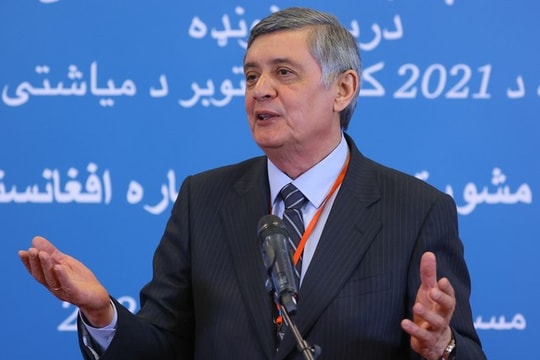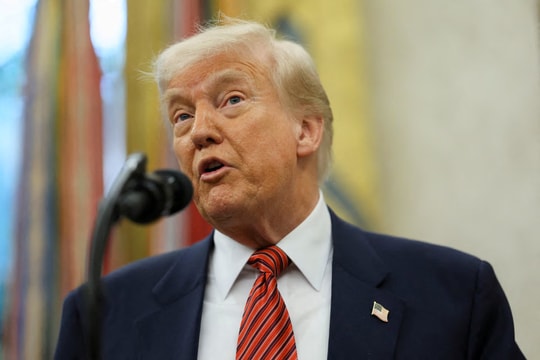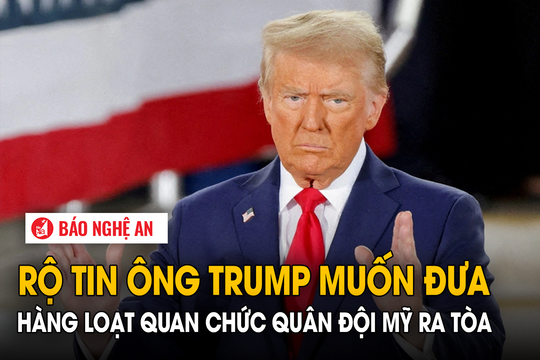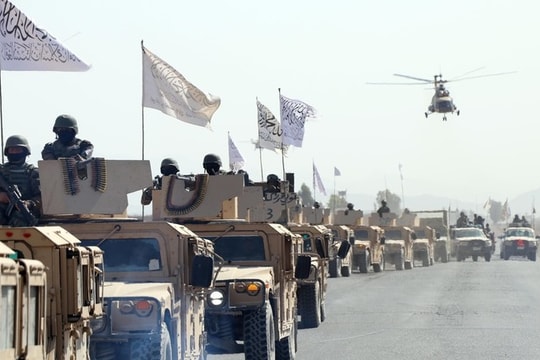Challenges Awaiting New Taliban Leader
(Baonghean) - The Taliban in Afghanistan recently announced the appointment of Mawlawi Haibatullah Akhundzada as the new leader of this force. Being the leader of the Taliban movement in Afghanistan must be one of the most demoralizing jobs in the world.
The first thing the “newcomer” had to do when he took the chair was to convince the entire movement of his legitimacy. Haibatullah had to show that he was a completely worthy, pious candidate, chosen according to Islamic Sharia law, or at least according to the Taliban’s interpretation of it.
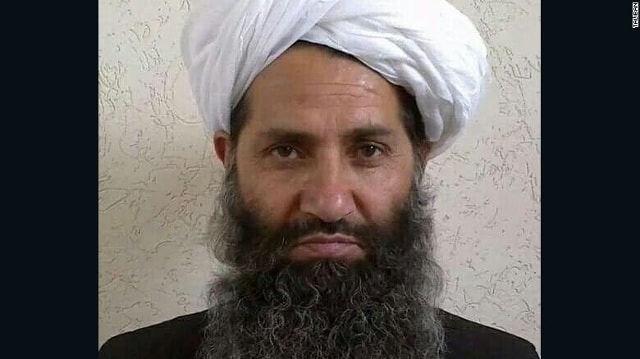 |
| Portrait of Mawlawi Haibatullah Akhunzada, the new leader of the Taliban in Afghanistan. Photo: AP |
Once all of this is done, the new Taliban leader will be able to command unconditional obedience from his subordinates, a privilege reserved for leaders of the notorious long-standing movement. Shortly after his predecessor Mansour assumed power, he forced the Cultural Committee to produce a biographical sketch emphasizing his leadership qualities.
With the new leader, only about 50 years old, from the Noorzai tribe, who grew up in the land that is the "cradle" of the Taliban in Panjwai district, southern Kandahar province, Afghanistan, people are also interested in what he will do, especially when analysts say that the appointment of Haibatullah to succeed Mullah Akhtar Mohammad Mansour after he was killed in an airstrike in Pakistan on May 21 is a "natural choice", showing that this Afghan armed group hopes to avoid further controversy.
Relations with Pakistan
Haibatullah’s biggest external challenge will be dealing with Pakistan. The Taliban leadership tends to operate on the assumption that it needs tolerance from the Pakistani authorities, so that it can use Pakistan as a base and a rear base for its jihad in Afghanistan. The Afghan Taliban has long calculated that as long as it does not conduct military operations on Pakistani territory, it will remain safe there.
Over the past six months, Pakistani officials have told the Taliban that the rules have changed. The Taliban must negotiate with the Kabul government or face dire consequences. Mansour, until his death, has consistently defied this pressure, refusing to allow Taliban officials to participate in the talks, instead resorting to a series of excuses and stalling tactics.
Haibatullah needs to reassess Pakistan's seriousness about bringing the Taliban to the negotiating table, and must assess whether the Taliban will really face any consequences if they continue Mansour's path of staying out of Pakistan-brokered negotiations.
“Marketing” the Taliban image
An equally thorny puzzle is how Haibatullah must decide how to deal with international jihadist networks, especially al-Qaeda and the self-proclaimed Islamic State (IS), which are now operating in both Afghanistan and Pakistan.
Mansour, like many in the Middle East, sees IS as both a threat and an opportunity. IS has sought to challenge the Taliban’s monopoly on leadership of Afghan jihad. Mansour has ruthlessly pushed the group back during Taliban military campaigns.
The Taliban’s hardline stance against IS has helped it make overtures to other countries in the region. The Russians have declared their ties to the Taliban, and the Iranians have stamped Maansour’s travel passport, symbolizing Mansour’s efforts to get Iran to back the Taliban.
But even if that’s not the case, IS is weaker in Afghanistan than it was last year. Haibatullah will therefore have to find new ways to market the Taliban as a potential anti-IS force worthy of support. With al-Qaeda, however, the leader faces almost the opposite problem.
In accepting the oath of allegiance from Ayman Al Zawahiri and al-Qaeda, Mansour and the Taliban movement failed to learn the first lesson of 9/11, which is that organizing international terrorist gangs to plot against the United States can invite terrible vengeance.
Haibatullah will seek to maintain the Taliban's reputation as an uncompromising jihadist organization that sees its links to al-Qaeda as useful, while also carefully keeping his distance from the Taliban base, where many names are skeptical about the presence and role of foreign Taliban fighters.
Evade air raids
And, of course, Haibatullah will seek to explain the US air campaign in Pakistan that killed his predecessor. Was it a one-off operation or did the Americans decide to go after the Pakistani Taliban leadership?
Understanding this was a matter of survival for Haibatullah. He would have to determine where his safe place was, so that he could escape the drones unscathed.
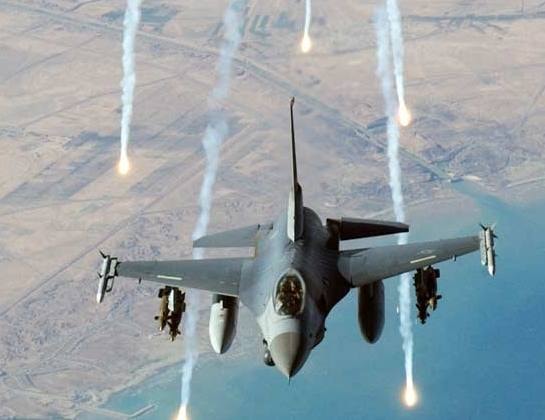 |
| The US airstrike campaign in Pakistan has destroyed the Taliban's predecessor. Photo: Internet. |
Perhaps the final regional issue the new leader will have to consider is how to respond to calls from the United States, China, Pakistan and Afghanistan for the Taliban to join peace talks. Under Mansour, the Taliban have viewed the process as a diplomatic game—how to keep it quiet without participating and how to avoid provoking the major powers unnecessarily.
Mansour was determined to maintain his jihadist force and pursue his dream of reestablishing the Caliphate through force and suffering. His death is the greatest proof the Taliban has received to date that Mansour's military aspirations were too ambitious.
It remains to be seen how far this realization will take the new Taliban leadership, as it faces the “bitter humiliation” of sitting down at the negotiating table with the Kabul government.
Phu Binh
(According to CNN)
| RELATED NEWS |
|---|

